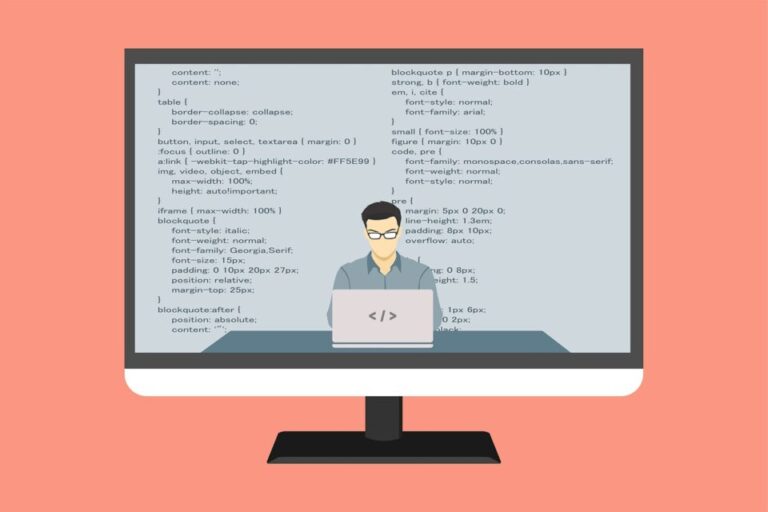Before we explore everything you need to know to become a Java developer, you’ll need to understand what Java is. Java is a programming language developers use for mobile, software, and web development. A small team called ‘The Green Team’ initially conceptualized Java in the early 1990s.
Since Java’s release in 1995, many modern programming languages have descended from it, including Python, Scala, JavaScript and PHP. Naturally, Java has remained one of the most popular programming languages to learn.
Java remains one of the most popular programming languages globally, widely utilized in everything from web development to SaaS platforms. However, finding a Java developer and hiring a good Java developer are two entirely different things.
How Long Does It Take To Learn Java Development?
It depends on the educational path you take. If you teach yourself Core Java and start developing after that, it could take a few months to a year. If you decide to get a bachelor’s degree, it could take four or more years.
That’s not to say one route is better than the other. The path you choose depends on what you want to do, where you want to work, and your personal circumstances.
What Skills Do Java Developers Need?
So, what exactly makes a Java developer not just competent but exceptional? Let’s dig deep into the traits, skills, and nuances that separate the ordinary from the extraordinary.
Java developers need an extensive range of skills, from in-depth knowledge of the basics to a thorough understanding of current developments. Experts in Java are also expected to know how the development process works and how to transition between the environments where the code runs.
A well-rounded Java developer has proficiency in Java full stack developer skills and Java backend developer skills.
Some of the key Java developer skills include:
- Proficiency in Java, with a good understanding of its ecosystems
- Sound knowledge of Object-Oriented Programming (OOP) Patterns and Concepts
- Familiarity with different design and architectural patterns
- Skill for writing reusable Java libraries
- Knowledge of Java concurrency patterns
- Basic Understanding of the concepts of MVC (Model-View-Controller) Pattern, JDBC (Java Database Connectivity), and RESTful web services
- Experience in working with popular web application frameworks like Play and Spark
- Relevant Knowledge of Java GUI frameworks like Swing, SWT, and AWT according to project requirements
- Ability to write clean, readable Java code
- Basic know-how of class loading mechanism in Java
- Experience in handling external and embedded databases
- Understanding basic design principles behind a scalable application
- Skilled at creating database schemas that characterize and support business processes
- Basic knowledge of JVM (Java Virtual Machine), its drawbacks, weaknesses, and workarounds
- Implementing automated testing platforms and unit tests
- In-depth knowledge of code versioning tools, for instance, Git
- Understanding of building tools like Ant, Maven, Gradle, etc
- Expertise in continuous integration
- JavaServer pages (JSP) and servlets
- Web frameworks like Struts and Spring
- Service-oriented architecture
- Web Technologies like HTML, JavaScript, CSS, and JQuery
- Markup Languages such as XML and JSON
- Abstract classes and interfaces
- Constructors, lists, maps, and sets
- File IO and serialization
- Exceptions
- Generics
- Java Keywords like static, volatile, synchronized, transient, etc
- Multithreading and Synchronization
How To Become A Good Java Developer: Educational Requirement

While Java developers do not need college degrees, they can help them stand out amongst the fierce competition. Many aspiring developers pursue a bachelor’s in computer science, information technology, or a related discipline. These programs often feature programming and software development studies.
Some professionals pursue master’s degrees in computer science as well. These degrees cover advanced concepts in Java programming and prepare students for senior positions and leadership roles.
Other avenues to the field may include a Java development bootcamp or certificate program. These condensed programs tackle many of the practical components of Java development and may qualify graduates for entry-level positions.
Qualified professionals from various backgrounds can develop a Java developer skillset to become successful Java developers. A bachelor’s degree or master’s degree in computer science, computer engineering or related field is preferred by many employers.
Hands-on software development experience, especially in Java, will boost your chances of bagging a high-paying Java developer job.
Learn A Core Java
Core Java covers most of the language’s fundamental concepts and applications, mainly object-oriented programming concepts. It’s a good place to start because you can use Core Java for developing general-purpose applications. But it also provides the foundation for advanced concepts.
Aspiring developers can also use Core Java to test out the field without investing too much time and money. If you find the language or concepts too challenging or uninteresting, you can pivot or change directions.
Get Hands -on Experience as a Java Developer
Employers look for candidates with relevant hands-on Java experience when hiring. You can gain experience in many ways, including through entry-level programming or junior developer positions. In these roles, professionals learn how to write clear and functional code, follow design plans, and test and modify scripts.
Aspiring developers can also pick up experience during their studies. College programs and bootcamps may feature internships that allow students to learn on the job and get familiar with the development processes.
You can also freelance for companies or develop your own Java projects.
Learn Advanced Java
After building a foundation in Core Java, you need to learn Advanced Java to create web-based applications. Advanced Java includes database connectivity, servlets, and Jakarta Server Pages. With this knowledge, you can design, develop, and deploy various online applications for clients.
Advanced Java prepares developers for client- and server-side architecture and how to work with different servers, frameworks, tools, and technologies.
Keep Building Your Resume
Java developers can continue building their resumes as they work their way into and through the field. They can develop their skills and specializations via self-study, college programs, or bootcamps. Developers can also add Java-based projects that highlight various skills and tools to their portfolios.
Vendor certifications can help developers as well. These credentials verify and promote the professional’s experience and skills using specific vendor technologies and practices. Java developers may consider the Oracle certified associate or Spring professional certification.
Enroll in a back-end development programme
Learning Java programming without help may not be effective for you. There are many terms and features to explore, which can get overwhelming. Online courses and coding boot camps are excellent options to consider.
They can provide significant guidance in studying key concepts and knowledge that may help you to become a Java developer. Coding boot camps are less expensive and much faster than a traditional four-year university degree. Many boot camps are free or offer deferred tuition options that can run for several days or months.
Online courses are also a great option. Most of them teach you all the basics, including how to write code using Java and the importance of every basic concept. Some courses are free and only require payment when issuing and shipping a physical certificate. Other courses may require payment to enrol and offer more personal tutorial sessions with the instructor. You can find these courses on any online learning platform.
Build your portfolio with your own Java projects
Becoming a Java developer requires a lot of practice. After learning the fundamentals of Java, constantly practice your newly developed skills and turn your knowledge into practical experience.
Practising your skills helps you build a portfolio that can help you secure a position as a Java developer. Your portfolio introduces your potential employer to your background, skills and experience as a Java developer, showing them a collection of one to three projects you’ve created.
Experiment by building mobile, desktop or web applications. Find some real-world projects that allow you to implement every topic you learn. A few examples of projects you can try developing include a currency converter, an ATM interface, a web server management system, a data visualisation software or a smart city project.
These projects may not necessarily be sophisticated or perfect, as they’re simply a way to show that you can develop various applications and projects with Java.
Join a Java community
In-person and online Java forums offer learning opportunities and help you network and solve different problems. Online communities include blogs and open-source platforms, which have become a meeting place for developers to share and improve codes.
In-person events, like conferences and meetups, can ease career development, help you learn with your peers and allow you to build close career networks. These communities help coding professionals learn new skills regardless of their knowledge or experience by joining educational conversations.
As a Java developer, you can become a part of these communities by signing up on these forums, sharing your broad ideas and knowledge and teaching others the skills you’ve learned. The best way to make the most of these platforms is by contributing often and building a reputation among community members.
Developers in small groups can schedule regular meetups with clear agendas. Attend these meetings and physical conferences. They allow you to build personal relationships with other coding professionals.
Conclusion
Java is one of the most popular and in-demand programming languages to learn and it was one of the first languages to standardize high-level threading utilities.
A Java project is a must for aspiring developers. This project helps developers develop real-world projects to hone their skills and materialize their theoretical knowledge into practical experience. Java has significant advantages both as a commercial language and as a teaching language.
Java project provides rigorous compile-time error checking typically associated with Pascal, allowing instructors to introduce students to GUI programming, networking, threads, and other important concepts used in modern-day software. Overall, the java project gives a complete design for the extended language.
